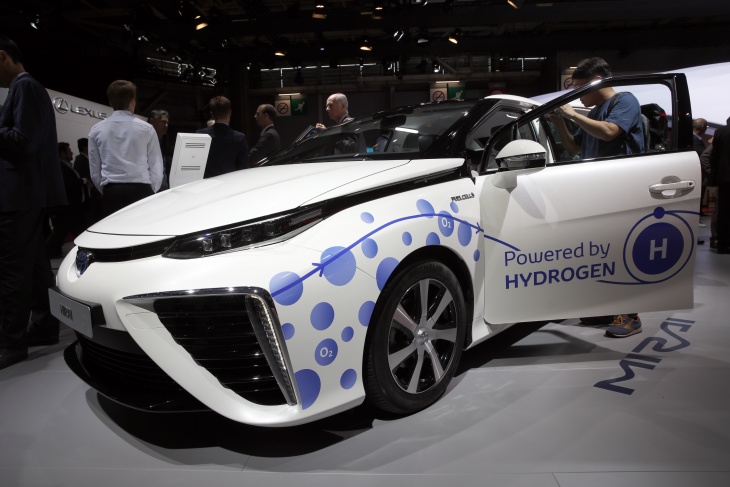Fuel Cell Vehicles: Nice Try But No Cigar

The Toyota Mirai, an hydrogen fuel cell vehicle
Meet The Electric Car That Doesn’t Need To Be Plugged In. We’ve already met. Dozens of times, over a period of decades.
The fuel cell vehicle is a good example of a technology that never made it and never will.
Twenty years ago, it was possible to argue that FCVs might somehow make a mark in the automotive market, though even then, most people with even a passing understanding of the issues were thinking: hmmm, a) that H2 sure is hard to make efficiently, b) fuel cells themselves sure are fragile and expensive, c) the fuel infrastructure component of all this (that is a piece of cake for the delivery of electricity) is an utter beast for hydrogen, and d) battery EVs keep getting better and cheaper.
Now that Honda and Toyota have both spent fortunes trying and failing with FCVs, the subject is pure folly at this point.

Craig,
I suppose this is another example of you making up your mind about the value of a particular type of technology based largely on prejudice and inaccurate, out of date information, then adhering to your belief despite any evidence to the contrary!
1) HFCV are not “fragile” ! These vehicles are extremely tough, safe, robust and reliable as hundred of thousands of fork lift owners will attest.
2) ” battery EV’s keep getting better and cheaper” Nope, that’s just not true !
But, you are a shinning example of why BEV’s have failed to capture more than 1% of automotive sales. You have yet to purchase an EV yourself, despite your hatred of oil companies and condemnation of car companies.
3) ” The fuel infrastructure component of all this (that is a piece of cake for the delivery of electricity) is an utter beast for hydrogen”.
Again, not true ! Infrastructure is relatively simple and economically feasible.
4) H2 is certainly not hard to hard to make efficiently ! It can be produced easily and cheaply.
5) HFCV is expensive. Nope ! Wrong again, in fact HFCV can be produced cheaper than BEV and if mass produced, would be approximately the same price as similar ICE units.
Toyota and Hyundai have both produced excellent HFCV’s and road tested the technology extensively and successfully.
HFCV has five major advantages over BEV.
1) No range anxiety. There is no difference between driving aN HFCV and an ordinary car.
2) Fast an convenient fueling. Fueling an HFCV is the same experience as refueling and ICE car, the whole procedure takes less than 4 minutes to complete.
3) No disruption to the existing economic infrastructure. The same service stations would simply add or convert to hydrogen “gas” pumps. Everyone gets to keep their jobs.
4) Taxation revenue. The tax on H@ would be the same revenue as existing taxes on gasoline and diesel.
5) Fuel cells not only offer great fuel economy, but can power a range of heavy vehicles, way beyond Battery rivals.
The only reason it hasn’t occurred is with gasoline prices relatively cheap, no one is interested in investing in either BEV or HFCV.
It’s fine to prefer BEV technology as a more elegant solution, (I do myself) but ignoring and falsifying the advantages and possibilities of HFCV technology is unhelpful and counter-productive.